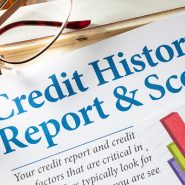
Effective September 30, all three credit bureaus instituted a change in how they calculate FICO scores. The components of the change that were announced publicly indicated that the new FICO model would employ a ‘look-back’ feature that tracks how a consumer has used their revolving (credit card) accounts over the past months and years. Mark Wells of Preferred Financial Services answers questions about the new scoring system and how it is affecting FICO scores.
How does a ‘look-back’ feature differ from previous score criteria?
Prior to September 30, the major factor that could affect your FICO score, as far as revolving debt was concerned, was the current balance on the account compared to the credit limit on the card. If your balance began to exceed 40 percent of the credit limit, you were penalized. However, if you paid down your balances, your scores would change immediately. Under the new system, you may pay down your credit card balances, but if you have not been using the card correctly over the past year, your scores may not change at all.
What is the correct usage of revolving credit?
Evidently, they are tracking two things: 1) Has the balance on the card been generally increasing over the past year (hurts your score), has it been about the same (neutral effect), or has it been decreasing (positive effect)? 2) Has the borrower been making the minimum required payment (hurts your scores), or been making more than the required payment (positive effect)?
In the real world, what are you seeing as far as how much a person’s scores can be affected by the look-back factor?
From the very limited number of credit reports we pulled prior to the change, and then re-pulled after the change, it appears that if your balances have been increasing over the past year, and you have just been making the minimum payment on the accounts, even paying off the balances completely will not increase your credit scores. So the ‘quick fix’ to credit scores we were able to get for borrowers appears to now be impossible if they have not been using their revolving credit in the proper manner.
How do I begin to correct my use of revolving debt so I generate good FICO scores?
We will learn more as we see more credit reports, but one thing is certain to help: pay off the balances on your credit cards as quickly as you can, without adding new balances to them. Once they are paid off, practice using the card for smaller monthly charges, and pay the balance off in full each month, rather than taking months or years to retire a balance. If you have to carry a balance, double the required monthly payment so you get credit for paying the account off faster.
Mark welcomes questions or comments and can be reached at (864) 235-9596, or by e-mail at Mark@TheGreatestRates.com.